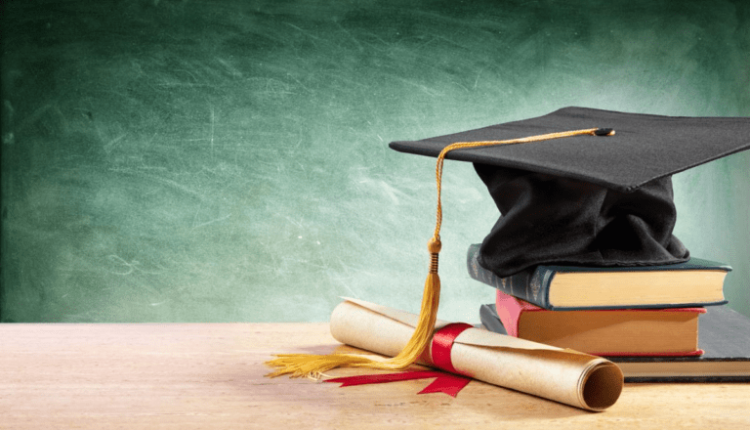Tinkering with secondary education
On Tuesday, June 25, 2024, Ghana Broadcasting featured in its 6 pm news bulletin, a parliamentary discussion on education.
The Majority Speaker claimed that the Government desired to enact a law to make free secondary education school a non-reversal national policy. He alleged, however, that the Minority in Parliament was not willing to commit to the law. The Minority side was not featured so could neither deny nor affirm the allegation.
It is surprising that widening access to learning should be a subject of discussion at a time when the UN is advocating education for all as part of the 2030 Education Agenda under Sustainable Development Goals.
It is surprising that a nation which has not been able to achieve Free Compulsory Universal Basic Education should contend a policy that has, at least, widened access to secondary education in a system which had consistently experienced unacceptable levels of secondary school dropout due to some parents’ poor financial circumstances.
It is surprising that a nation which desperately needs to develop human capital for diligent and effective utilisation of natural resources should have some nationals object the most effective avenue for human resource development.
If this were any other country with assertive youth, any politician who spoke against the Policy of enhanced access to secondary education would be effectively signing the death warrant for her/his political aspiration(s).
Alas, this is Ghana, where people in leadership can utter reprehensible sentiments and act to heap indignities on fellow country people yet go scot-free, or even enjoy the goodwill of the very people they marginalise.
Consequently, stakeholders gleefully tinker with education, because they know they can get away with it. When other countries with population tenfold of Ghana’s have achieved zero illiteracy statuses, Ghana is consistently producing horrifying numbers of secondary school graduates with functional literacy skills.
What is worse, a cross-section of learners in the tertiary classroom can barely read or write. Yet, instead of joining hands to fight obstacles to quality education, some nationals aggressively oppose efforts to right educational wrongs.
The annoying part is that the country can afford to educate its children and youth if it focuses on human interests. Every child can receive education to pave the way for a quality existence.
A nation which purchases Land Cruisers and utility vehicles in fleets for government machinery and other state agencies can educate the taxpayers’ children up to the secondary level.
If the nation was human-focused, there would be consensus on prioritising quality education to better human capital in the country. It is bad enough that the two parties in parliament cannot agree on enhancing access to secondary education.
However, the real contemptible ones are those in education who have opposed the policy in the past seven years with the despised argument that it is costly.
Yɛde nam na eyi nam wɔ nsuom is an Akan proverb which literally translates that one needs bait to catch fish. Yɛnkɔte aduro mmra a, ɛno are ne ahahan, literally translates, to produce medicine, one needs leaves.
Both proverbs underscore the fact that productive human venture requires diligence, strategy and sacrifice, to mention three. Education which engenders human sophistication is invaluable. Indeed, quality education is a priceless major investment in human capital, the best legacy any nation can give to children.
It is only upon fulfilling that condition can a nation lay claim to preparing growing generations for future leadership. One can only hope that the minority in parliament will prioritise human interest over selfish political ambition to commit to sustaining this policy and enhancing access to secondary education.
Of course, the nation should be targeting zero illiteracy. The opposition has consistently waylaid the initiative to widen access to secondary education. The policy would not have seen the light of day, had the opposition had its way.
If the opposition had played a constructive role, some aspects of the initiative could have been constructively critiqued at the early implementation stage to avoid some lapses, losses, and excesses.
However, due to their antagonistic stance, they failed at constructive input. The national target could have been strategising for quality alongside enhanced access. We might be reaping better results now.
The numerous challenges notwithstanding, the nation’s effort at increasing access to secondary education by removing parents’ financial responsibility has benefited all categories of Ghanaians.
There should be no going back. The economy is not suffering due to the free SHS Policy. The economy is wobbling due to avoidable financial waste and Ghanaian greed.
If the nation cuts down on political and financial excesses if oversight bodies ensure effective utilisation of financial resources, if the greedy who siphon funds into their pockets are disciplined into paying back all stolen funds to deter other miscreants, the state could fund secondary education without hitches.
The Ghanaian youth deserve good education from the state, so the state funding should remain unchanged. The focus should be on improving teaching/learning to make the national investment worthwhile.
The target should be producing astute human capital that will place human interest far above monetary glitter and vanity and protect nature and the environment. For a change, let there be parliamentary consensus on utilising financial resources effectively to promote quality secondary education at the taxpayers’ expense.
The writer is a Senior Lecturer, Language and Communication Skills, Takoradi Technical University


